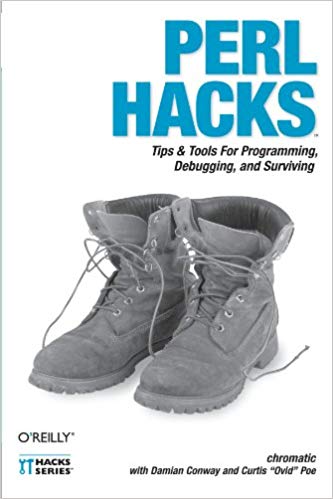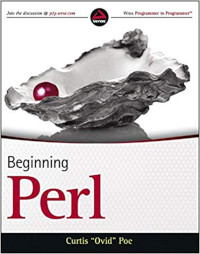It goes without saying that COVID-19, better known as the coronavirus, is dominating the news right now. Plenty of people are worried and there’s plenty of “fake news” out there. However, an article entitled The Coronavirus Is Much Worse Than You Think , by Samuel Paul Veissière Ph.D. and published in Psychology Today, not only has a terrible clickbait title, but commits one of the worst sins a news organization can commit: lying without lying.
While I’m sure that Veissière didn’t mean to do this directly, I’m nonetheless horrified by this article because it’s making the rounds and I want a handy link to share to debunk the nonsense right now.
The article’s premise is actually sound: you’re very unlikely to contract the coronavirus and, even if you do, you’re unlikely to die from it, so there’s no need to panic.
So far, so good. Except the author makes a terrible, terrible mistake by initially omitting the word “now”.
So let’s look at his initial question:
Why then are so many countries implementing quarantine measures, shutting down their borders, schools, and soccer games for something that is less likely to happen to anyone than drowning in a single year, or even being hit by lightning in one’s lifetime? Why is the stock-market crashing, and why are school and workplace mass emails, news headlines, social media feeds, and face-to-face conversations dominated by stories about what is essentially a new strand of mild to moderate flu?
The error in that should be blatantly obvious, but it would be hilarious (were the situation not so grave) given that the author followed this up with:
To understand this strange dynamic, consider people’s blatant inability to make statistically correct inferences about actual risk ...
OK, let’s talk about statistics. In particular, we’re going to talk about “dependent” and “independent” events.
What are the chances that I contract coronavirus? Right now, they’re pretty small. But what if my wife catches coronavirus? My chances increase dramatically. Thus, the chances that I’ll contract coronavirus are highly dependent on whether or not those around me catch coronavirus. Thus, these are what we call “dependent events” and the chances of one materially effect the chances of the other.
This is what Samuel Paul Veissière, Ph.D., doesn’t seem to understand about statistics. To answer his original question about the quarantine when the risk is so low: the risk can remain low if and only if the quarantine works.
Asshole. (Dr. Veissière is probably actually a wonderful person, but this sort of irresponsible writing really makes me mad).
So the risk is dependent on the quarantine, but let’s talk about independent events because they make the situation worse. My wife and I have a young daughter. Let’s say that one of us catches the disease. The chances are high that all of us will then catch the disease. But the chances of any of us dying from the disease are independent of one another. But what does that mean?
Currently, it appears that the chances of our daughter dying are pretty close to zero. The chances of my wife dying appear to be around 2%, and the chances of my dying are around 4%. . Well, it turns out that if you do the math, that works out to a 5.9% chance of one of us dying. Instead of a 1 in 50 chance of losing a parent, our daughter has a 1 in 17 chance of losing a parent.
So yeah, coronavirus is a big deal and not something for otherwise respectable publications like Psychology Today to brush off.
But what happens globally? According to Prof. Marc Lipsitch, Professor. of Epidemiology, Harvard School of Public Health, up to 40% to 70% of the world population could get infected. . He also has very good historical data to back him up. It doesn’t mean this will happen, but if we don’t take preventive measures, it could happen. So what does that mean?
If we’re generous and assume the lower number of 40% of the population is infected, and we assume a 2% (overall) mortality rate, that’s around sixty million dead, or about 170K per day. (To be honest, there’s some hand-waving in this due to unknown rates of infection, re-infection, and so on).
It’s estimated that 150K people die every day (globally), so we’ve more than doubled the number of people dead. But these aren’t people being hit by cars, bullets (go USA!), or dropping dead from a heart attack or stroke. These are people whose deaths are painful and take some time. We’re already overwhelming some of the public health systems. We’re already shutting down businesses all over the world. And that’s long before pandemic status. If we don’t contain the virus, you can expect fewer food deliveries, fewer medical deliveries, more companies failing, and so on. And if you’re one of the unlucky people to contract the virus, you know that probability of dying is significantly higher than it’s ever been.
Oh, and about that 2% chance? While the Dr. Veissière blithely reassures us that we’re all being silly, let’s talk about comorbidities. These are other medical conditions you might have at the same time. In particular, cardiovascular disease, diabetes, high blood pressure, chronic respiratory infections, and other issues appear to dramatically increase your chance of dying from coronavirus.
As a final thought, just in case you think you’re safe, Dr. Veissière does have this to say:
The bad news for you is that, if you live in a densely populated area, you are very likely to contract the coronavirus — if not this year, next year, or the year after as it undergoes its seasonal global migration pattern with its zoonotic cousins.
So there you go. Buried at the end of his article, after he seems to discourage us from quarantines, after he presents a bunch of evolutionary history which isn’t relevant to most people’s concerns, he finally admits that most of us are going to get the disease sooner or later.
COVID-19 certainly isn’t the end of humanity, it’s a very serious problem that absolutely doesn’t deserve this type of sloppy reporting.
Update: it turns out that scientists are also calling BS on this drivel. Seems that not only was the statistical premise wrong, but the biology was also dead wrong.



